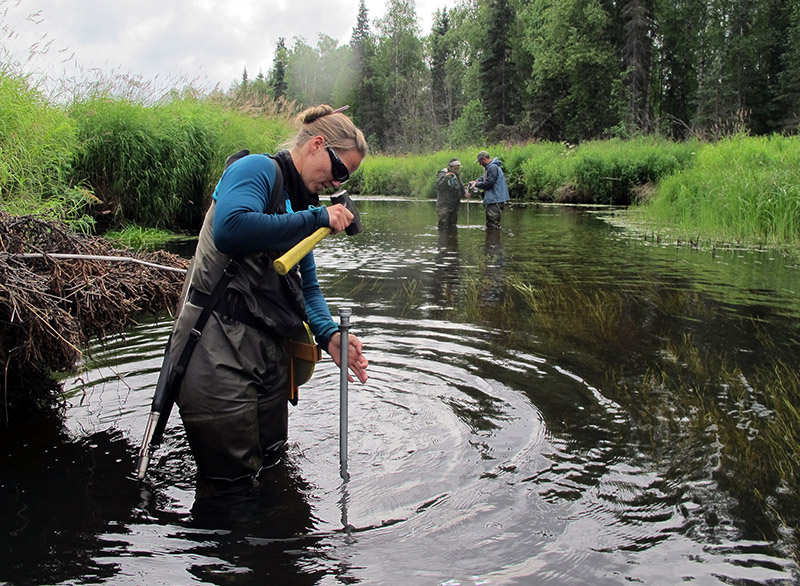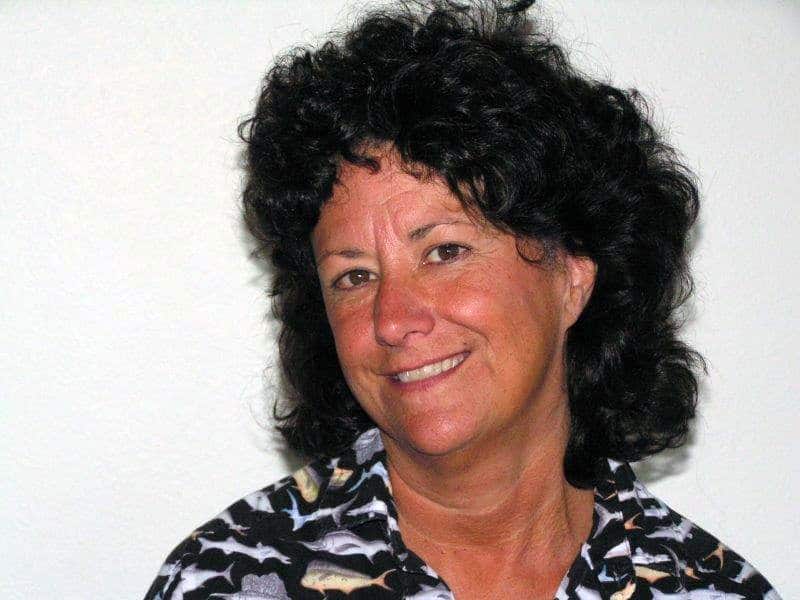May 25, 2017
Alaska budget limbo could stall salmon, other fisheries

Alaska Fish & Game workers on Rabideux Creek, a tributary to the Susitna River near Talkeetna, Alaska, take readings as part of habitat measurements and fish assessments to better understand what spawning conditions are preferred by salmon here. USFWS ph.






